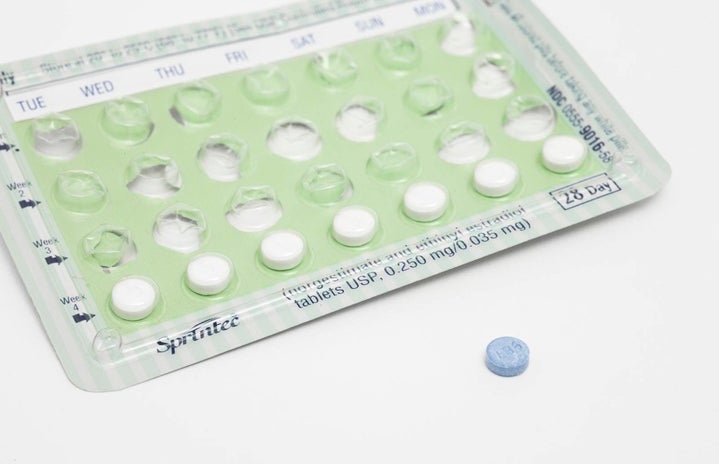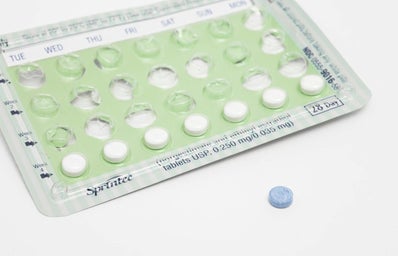When I was 14 years old, I had periods that lasted up to six months with a week-long break in between. During that week in between, I would have a fever and become severely sick. To stop my irregularity and illness to the point of missing a week of school when I would begin my period, I started birth control. It may not have the best reputation, but birth control does so much more than prevent pregnancy.
Not everyone on birth control is necessarily trying to prevent pregnancy. There are several different uses for the pill. Some include eliminating hormonal acne, regulating cycles, or fighting against endometriosis. Acne is thought to affect up to 80% of people from 11-30 years old. Birth control is a generally accepted method to treat moderate acne, especially if antibiotics like minocycline do not help. Around 14% of menstruators have irregular cycles. While birth control can cause irregular cycles, it can also treat pre-existing problems. Irregular cycles can be frustrating, especially when you find yourself unprepared to start your period earlier or later than usual (source). Around 1 in 10 menstruators are affected by endometriosis. Endometriosis is caused when the lining that is supposed to be inside the uterus is instead on the outside, causing an inflammatory reaction. It can start with someone’s first period and can, but does not always, stop by menopause. There is currently no cure for endometriosis, but birth control is often prescribed to manage it.

Almost two-thirds of American women use some sort of birth control. Birth control is a reproductive right, and the widespread use of birth control has caused the lowest abortion rates in quite some time. Birth control can be beneficial no matter what the user is taking it for (source). As the Supreme Court discusses the revisiting of Roe v. Wade, it is important that the right to birth control and other contraceptives be unconditionally protected. Without birth control, many people are at risk of suffering from endometriosis, incredibly long or painful periods, or unplanned pregnancy.
After examining the benefits, why are parents still often hesitant to let their teenage children get on birth control? One reason would be that birth control holds a bad reputation for only being for people who want to have sex without worries of pregnancy. This is not always the case; however if a child wants to get on birth control to prevent pregnancy, what should the parent say? There are many good reasons to allow it. Regardless of parental opinions, teenagers often engage in sexual intercourse— 55% of teenagers become sexually active by age 18. Knowing this, parents should allow their children to go on birth control even if it is solely to prevent pregnancy. Birth control is not a gateway drug to sex and does not inherently have to do with an individual’s sexuality ( check out this source for more information).

We cannot stereotype users of birth controls as people that simply want sex without consequences. It is often used as a medicine instead of just a contraceptive. As a medicine, it benefits several users across the U.S. and must remain available to all that need or want it.



